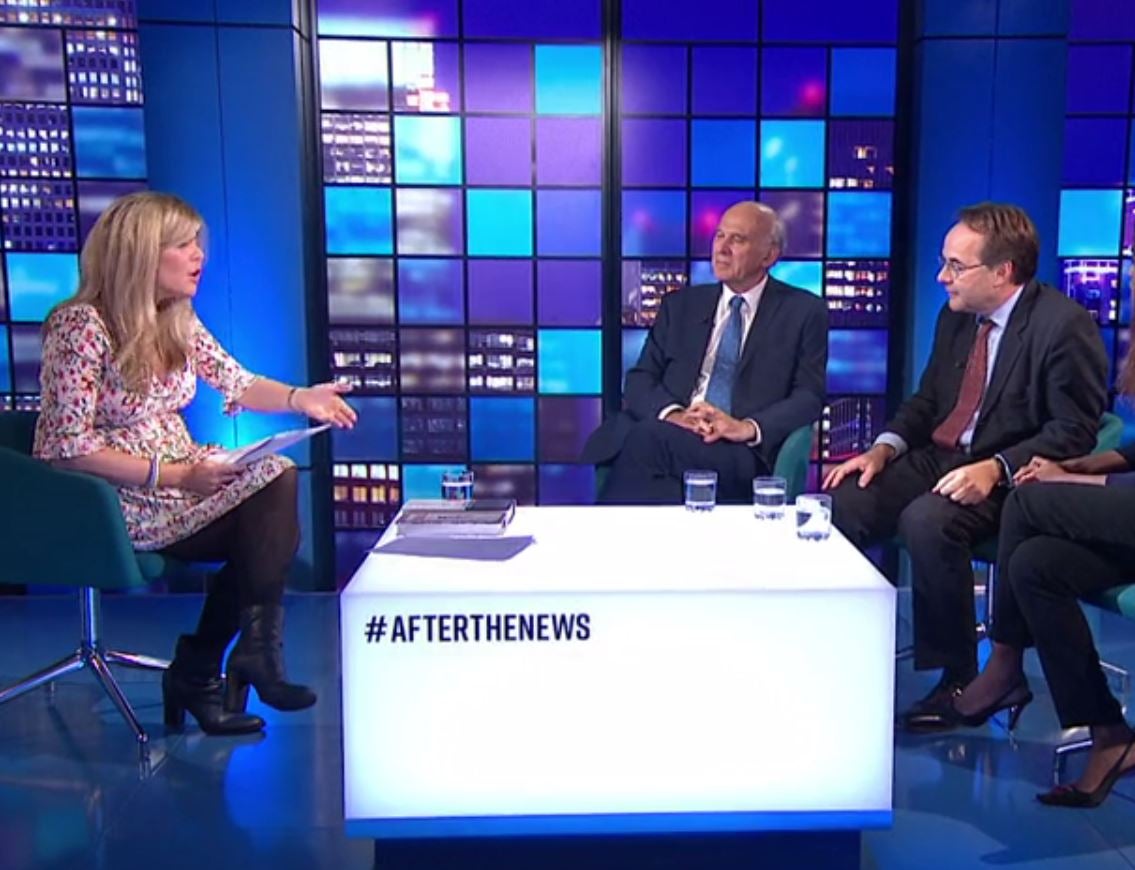
Conscious or unconscious bigotry? That was my quandary after watching Quentin Letts on ITV’s “After The News” on 17 October.
On the show, he made the disturbing claim that left-wing activists may have been engaging in anti-Semitism to try to “appeal to The Muslim Vote”.
Outrageous bigotry: The Daily Mail’s @thequentinletts is unchallenged as he claims anti-Semitism on the left may be to appeal to “The Muslim Vote” #afterthenews #Islamophobia pic.twitter.com/beqDTwPKrQ
— Miqdaad Versi (@miqdaad) October 18, 2017
Quite extraordinarily he implied that anti-Semitism is somehow attractive to Muslim voters, with no challenge from presenter Emma Barnett.
Of course, there is little excuse for bigotry of any type. However, even if one were to charitably assume this was an unintended slip of the tongue from an otherwise good person, his choice of words still suggests an implicit bias against Muslims.
[Press Gazette put Versi’s concerns to Letts and his response is at the bottom of this article]One might argue that such attitudes reflect the social acceptability of anti-Muslim attitudes in broader society, where over half the population support racial profiling of Muslims and believe Islam poses a threat to the West, and over 40% have a growing suspicion towards Muslims.
As Press Gazette reported earlier this year, there is a dossier of inaccurate stories about Muslims in the print press which “would not be tolerated if they were about Judaism”.
The problem is not limited to print media or this one example on ITV.
On Sky News’ Press Preview, Melanie Phillips falsely cited dictator President Sisi when she said: “1.6bn Muslims try to murder the rest of the world”.
Melanie Phillips on Sky cites dictator Sisi to support her bigotry: “1.6bn Muslims are trying to murder the rest of the world” #appalling pic.twitter.com/SDEdjngpd2
— Miqdaad Versi (@miqdaad) June 21, 2017
The highly regarded BBC Sunday Politics not only welcomed Douglas Murray – a man who had previously said “Conditions for Muslims in Europe must be made harder across the board” – but gave him an unchallenged platform to claim that “less Islam is a solution to terrorism”.
We live in a free society where people can have bigoted views.
However, what is truly concerning is the apparent institutional acceptance that anti-Muslim views should be broadcast without challenge as happened in each of the three cases cited, even though it is in the presenter’s remit to do so.
More worryingly, all three programmes did not even accept their error of judgement, even after the evidence was brought before them.
We live in troubling times for Muslims.
Just this week, Conservative Member of Parliament Bob Blackman hosted anti-Muslim extremist Tapan Ghosh in Parliament and was found to have re-tweeted the far-right anti-Muslim extremist Tommy Robinson.
A Muslim woman and a 12-year old girl were hit by a car in Leicester in the latest example of an alleged hate crime targeting Muslims. And a man pleaded guilty after smearing pork sausage meat on the door of a mosque.
When Cambridge University state that the way sections of the media report about Muslims fuels “rising hostility towards Muslims in Britain”, the link between media reporting about Muslims and its consequences in the views of broader society cannot be ignored.
Responsible reporting and challenging those who say bigoted things – these are basic expectations by the broadcast regulator OFCOM. Hopefully this is not too much to ask from today’s broadcasters?
Quentin Letts told Press Gazette: “What I was trying to convey was the indeed improper view (which I suggested was held by some in the Labour party) that ‘the Muslim vote’ existed… I said I couldn’t understand the reasoning behind anti-semitism in left-wing politics at the moment and could only conclude that Momentum or Labour types must have calculated that there was some form of electoral gain in it.”
Miqdaad Versi is assistant secretary general of the Muslim Council of Great Britain
Email pged@pressgazette.co.uk to point out mistakes, provide story tips or send in a letter for publication on our "Letters Page" blog

